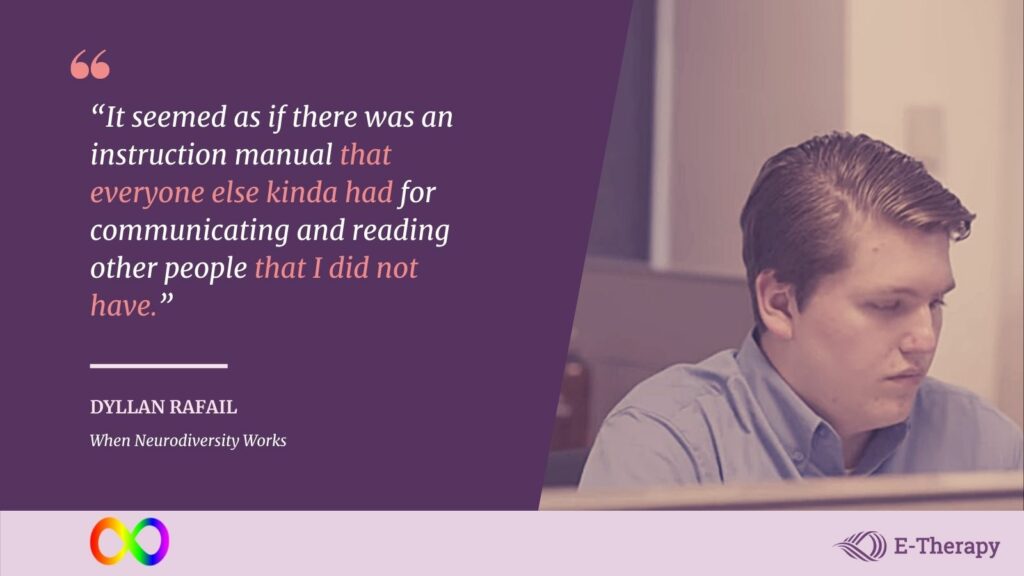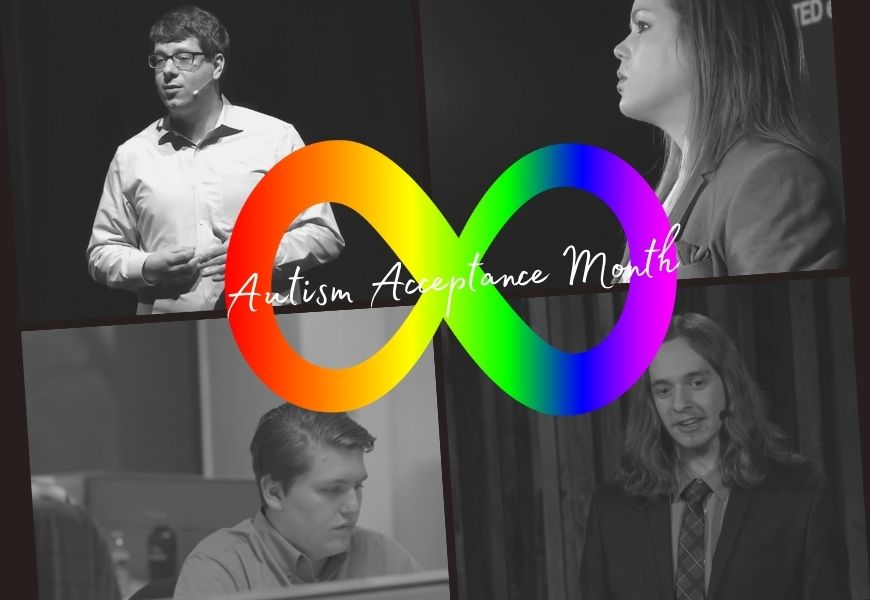 The word acceptance can be defined in a few different ways. It can mean receiving something that is offered, a bill of exchange, or a willing embrace of new ideas. The best way to define and understand autism is to listen to people with autism.Over the years, we have learned to listen to our students, to their neurotypical family and teachers, and to autistic adults, so we can get a better understanding of the diversity of views and perspectives among autistic people.These days, it’s not hard to find people willing to challenge stereotypes and speak about their experiences in a world that wasn’t designed with them in mind. For Autistic Acceptance Month, we curated some of our favorite videos from people willing to teach us their truth about autism.
The word acceptance can be defined in a few different ways. It can mean receiving something that is offered, a bill of exchange, or a willing embrace of new ideas. The best way to define and understand autism is to listen to people with autism.Over the years, we have learned to listen to our students, to their neurotypical family and teachers, and to autistic adults, so we can get a better understanding of the diversity of views and perspectives among autistic people.These days, it’s not hard to find people willing to challenge stereotypes and speak about their experiences in a world that wasn’t designed with them in mind. For Autistic Acceptance Month, we curated some of our favorite videos from people willing to teach us their truth about autism.
When Neurodiversity Works
Watch When Neurodiversity Works featuring Dyllan Rafail.
“It seemed as if there was an instruction manual that everyone else kinda had for communicating and reading other people that I did not have.”
Why Everything You Know About Autism Is Wrong
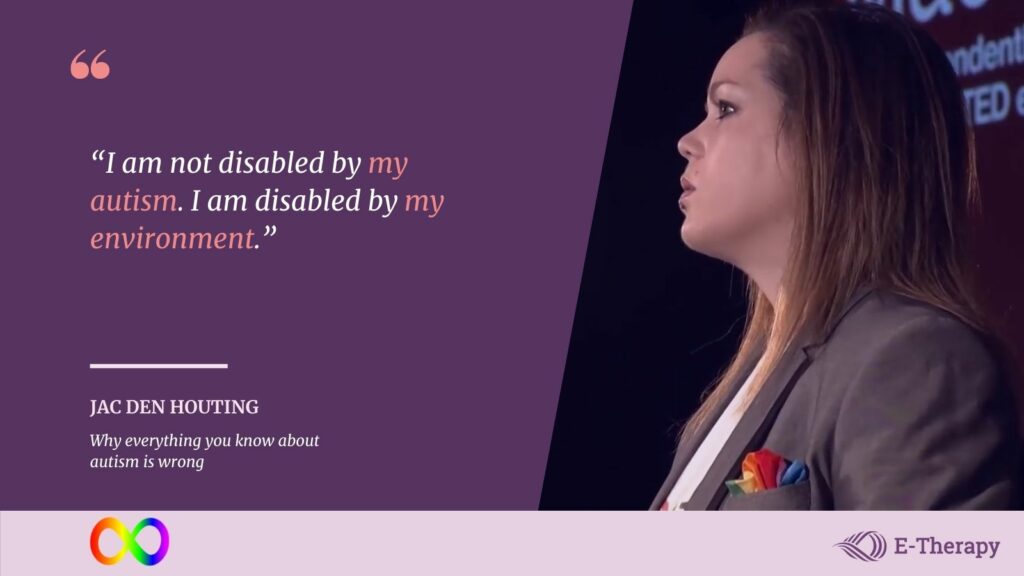 Watch Why everything you know about autism is wrong video featuring Jac den Houting.
Watch Why everything you know about autism is wrong video featuring Jac den Houting.
“I wasn’t a failed neurotypical person. I was a perfectly normal autistic person.”“I am not disabled by my autism. I am disabled by my environment.”“The neurodiversity paradigm is an alternative way of thinking about autism. It describes autism as part of the range of natural variation in human neurological development.”“According to the neurodiversity paradigm, all forms of neurological development are equally valid and equally valuable. And regardless of what type of brain you’ve got, all people are entitled to full and equal human rights and to be treated with dignity and respect.”
What Being Autistic Taught Me About Being Human
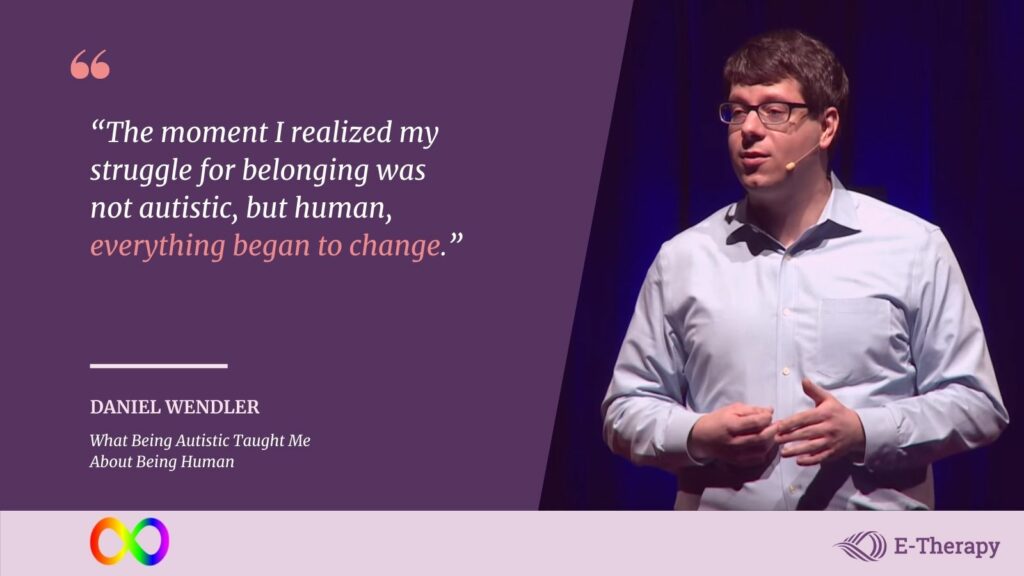 Watch What Being Autistic Taught Me About Being Human video featuring Daniel Wendler.
Watch What Being Autistic Taught Me About Being Human video featuring Daniel Wendler.
“The moment I realized my struggle for belonging was not autistic, but human, everything began to change.”
What It’s Really Like To Have Autism
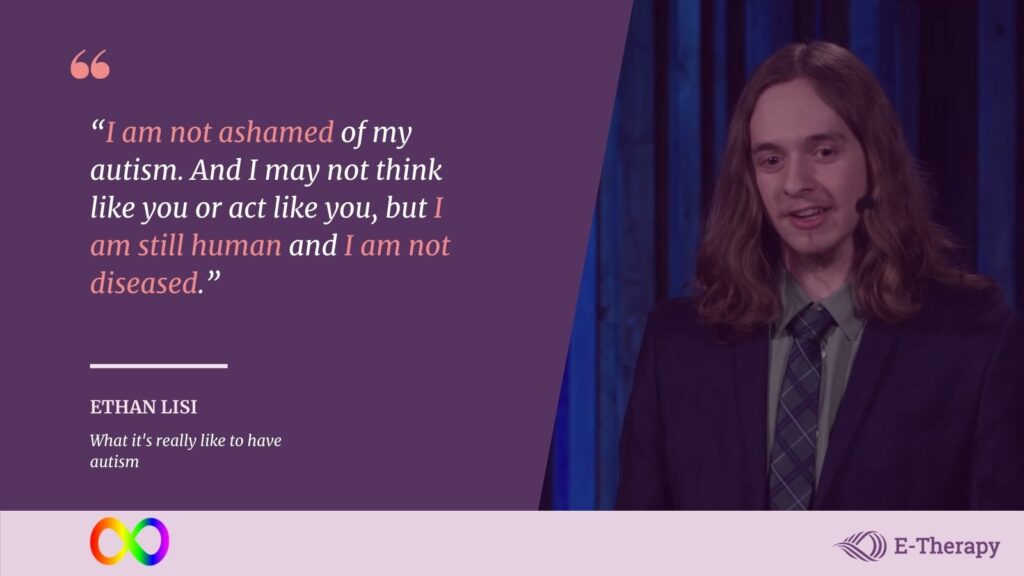 Watch What it’s really like to have autism video featuring Ethan Lisi.
Watch What it’s really like to have autism video featuring Ethan Lisi.
“The main problem with living autistic in today’s society is that the world just isn’t built for us.”“Some people think that because of our ability to mask, that this is a cure for autism. However, all it really does is it makes us ashamed for showing our true selves.”“Emotional expression, however much or however little, is difficult for me. And that is because I am bursting inside with every single emotion one feels at all times.”“I am not ashamed of my autism. And I may not think like you or act like you, but I am still human and I am not diseased.”
E-Therapy’s Direct Services to PreK-12 Schools
E-Therapy provides speech therapy, Mental Health Teletherapy and behavioral services, and physical and occupational therapy to PreK-12 schools across the country. We want to help your school. Contact us!
